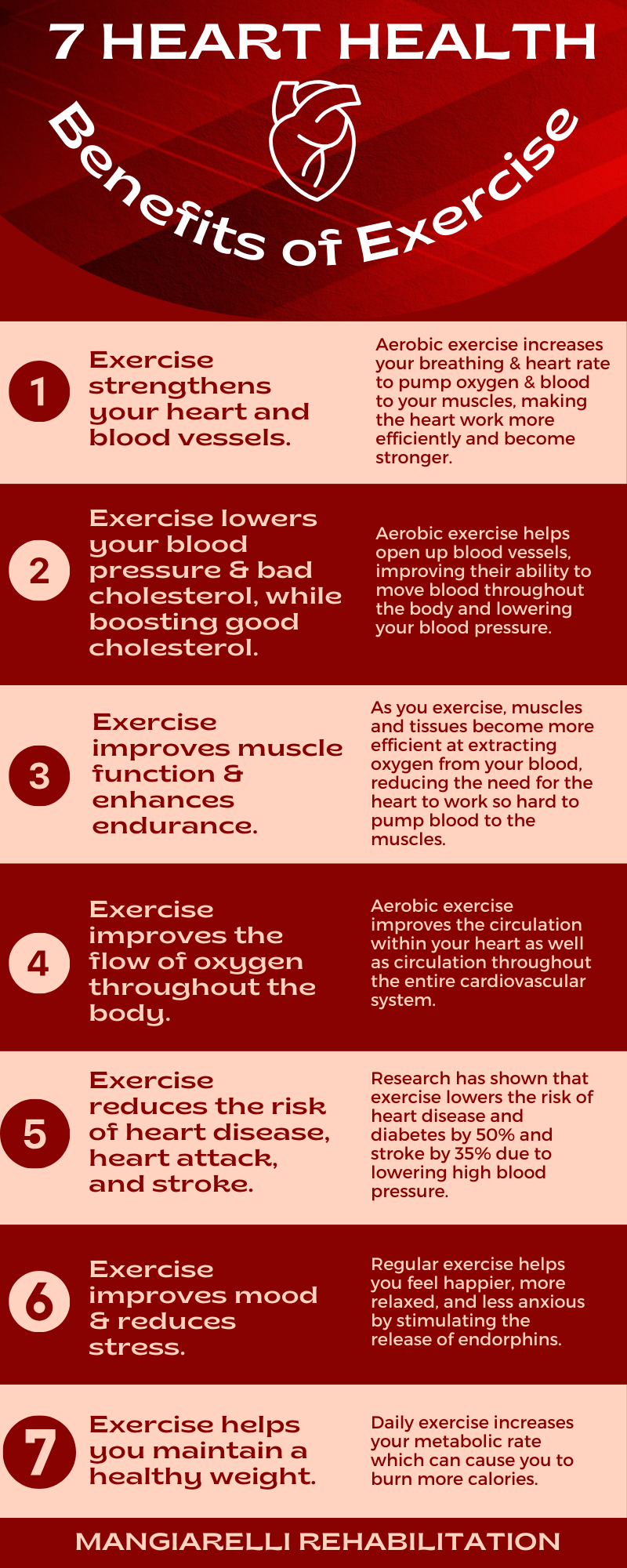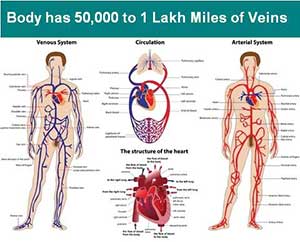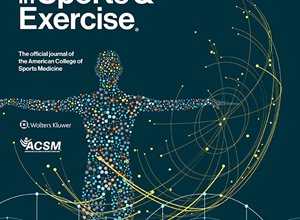
What are the Benefits of Exercise in the Circulation of Blood: Vital Insights
Exercise plays a crucial role in maintaining and improving blood circulation. Good blood flow is essential for overall health, delivering oxygen and nutrients to cells.
Engaging in regular physical activity has numerous benefits for the cardiovascular system. It helps strengthen the heart, making it more efficient at pumping blood. This, in turn, improves the circulation of blood throughout the body. Enhanced circulation ensures that all body tissues receive adequate oxygen and nutrients, which is vital for energy production and overall health.
Additionally, good blood flow helps remove waste products from the body more efficiently. In this post, we will explore the various benefits of exercise on blood circulation and how it contributes to better health.

Credit: www.ekunji.com
Introduction To Exercise And Blood Circulation
Workout plays a crucial role in maintaining overall health. One of its significant benefits is improving blood circulation. Good circulation ensures that oxygen and nutrients reach all parts of the body effectively. In this section, we will explore how exercise impacts blood flow.
Connection Between Exercise And Circulation
Regular physical activity helps the heart pump blood more efficiently. When you exercise, the heart rate increases. This means the heart pumps more blood with each beat. As a result, the circulatory system works better. This improved efficiency helps reduce the risk of heart disease.
Exercise also helps the blood vessels to expand and contract. This flexibility is essential for maintaining healthy blood pressure levels. Additionally, physical activity can prevent blood clots, which can cause serious health issues.
Importance Of Healthy Blood Flow
Healthy blood flow is vital for delivering oxygen and nutrients to the body’s cells. It also helps remove waste products from the body. Proper circulation supports the immune system by allowing white blood cells to move freely. This can help fight off infections more effectively.
Improved blood flow can also enhance brain function. Better circulation means more oxygen and nutrients reach the brain. This can improve memory and cognitive function. In short, healthy blood flow is essential for overall well-being.

Credit: www.sciencedirect.com
Cardiovascular Health
Exercise brings many benefits for cardiovascular health. It helps keep your heart strong and healthy. Regular physical activity can improve blood circulation. This leads to a healthier heart and better overall health.
Strengthening The Heart
Exercise strengthens your heart. A stronger heart pumps blood more efficiently. This helps deliver oxygen and nutrients to your body. It also helps remove waste products. Walking, jogging, or swimming can help improve heart strength. Consistent activity makes your heart a more effective pump.
Reducing the Risk Of Heart Disease
Workout reduces the risk of heart disease. It helps control weight and lowers blood pressure. It can also reduce bad cholesterol levels and increase good cholesterol. Regular exercise keeps your arteries flexible and clean. This lowers the risk of blockages and heart attacks. Even a small amount of daily activity can make a big difference.
Improved Blood Pressure
Regular exercise has numerous benefits for the body. One of the most significant is improved blood pressure. Workouts can help regulate and maintain healthy blood pressure levels. This leads to a healthier heart and fewer health risks.
Regulating Hypertension
Exercise plays a critical role in regulating hypertension. Hypertension, or high blood pressure, is a common issue for many people. Regular physical activity helps to lower blood pressure. It makes the heart stronger and more efficient at pumping blood. This reduces the force on arteries and lowers blood pressure.
Engaging in activities like walking, jogging, or cycling can have a profound impact. The American Heart Association recommends at least 150 minutes of moderate exercise per week. This can help manage and prevent hypertension.
Enhanced Vascular Function
Exercise also leads to enhanced vascular function. It improves the flexibility of blood vessels, allowing them to expand and contract more easily. This process helps to reduce the workload on the heart.
Moreover, regular workout promotes the production of nitric oxide in the blood vessels. Nitric oxide helps to relax and widen blood vessels. This leads to better blood flow and lower blood pressure.
Activities like strength training and aerobic exercises are particularly beneficial. They improve overall blood circulation and vascular health.
| Type of Exercise | Benefit |
|---|---|
| Aerobic Exercise | Lower blood pressure, and improved heart function |
| Strength Training | Enhanced vascular function, better blood flow |
| Walking | Regulates blood pressure, easy to do |
Incorporating regular exercise into your routine can bring significant benefits. It can improve blood pressure and enhance overall heart health. Start with simple activities and gradually increase the intensity. Your heart and blood vessels will thank you.

Credit: lonestarneurology.net
Oxygen And Nutrient Delivery
Exercise plays a vital role in improving blood circulation. Efficient blood circulation ensures that oxygen and nutrients reach all parts of the body. This process is essential for maintaining overall health and well-being. Let’s explore how a workout boosts oxygen supply and enhances nutrient transport.
Boosting Oxygen Supply
During exercise, the heart pumps faster. This increases the amount of oxygen-rich blood reaching the muscles. Muscles need more oxygen during physical activity. They use oxygen to produce energy. This energy is necessary for muscle contraction and movement.
Regular workout strengthens the heart. A strong heart can pump more blood with each beat. This means more oxygen is delivered to the muscles and organs. Improved oxygen supply helps reduce fatigue and increase endurance.
Efficient Nutrient Transport
Exercise also enhances the transport of nutrients. Nutrients are essential for muscle repair and growth. Blood carries these nutrients to the muscles and tissues. During exercise, blood flow increases. This means more nutrients reach the muscles quicker.
Here are some key nutrients delivered by the blood:
- Glucose: Provides energy for muscle activity.
- Amino acids: Help in muscle repair and growth.
- Fatty acids: Used as a source of energy during prolonged exercise.
With regular exercise, the body becomes more efficient at nutrient transport. This leads to better muscle health and faster recovery after workouts. It also supports overall metabolic function.
Blood Vessel Health
Exercise plays a crucial role in maintaining blood vessel health. Regular physical activity ensures that blood vessels remain in optimal condition. This contributes to overall cardiovascular health and well-being. Let’s explore the specific benefits exercise offers to blood vessel health.
Maintaining Elasticity
Exercise helps blood vessels maintain their elasticity. Elastic blood vessels can expand and contract easily. This ability ensures smooth blood flow throughout the body. Physical activity encourages the production of nitric oxide. This compound aids in vessel relaxation and flexibility. Consistent exercise ensures vessels remain elastic and responsive.
Preventing Arterial Stiffness
Arterial stiffness is a common issue as we age. A regular workout can help prevent this condition. Engaging in physical activities like walking, running, or swimming strengthens the arterial walls. Strong arterial walls are less prone to stiffness. Exercise also reduces inflammation within the blood vessels. This further prevents the hardening of arteries. Keeping arteries flexible is key for healthy circulation.
Enhanced Immune Function
Regular Workout plays a crucial role in boosting the immune system. It helps the body fight off infections and diseases. Improved blood circulation from exercise is key to this process.
Stimulating Immune Cells
Exercise helps to stimulate immune cells. This includes white blood cells and antibodies. These cells move more quickly through the body. Faster movement means they can detect and attack infections sooner. This keeps the body healthier.
Reducing Inflammation
Workout helps to reduce inflammation in the body. Chronic inflammation can weaken the immune system. Reducing it strengthens the body’s defense mechanisms. This makes it easier to fight off illnesses. Exercise also helps to regulate the body’s inflammatory response.
| Benefit | Description |
|---|---|
| Stimulating Immune Cells | Promotes faster movement of white blood cells and antibodies. |
| Reducing Inflammation | Helps to lower chronic inflammation and strengthen immunity. |
Regular physical activity is a simple way to support overall health. The benefits to the immune system are clear. Consider adding a daily workout routine to your life. It can make a big difference in your health.
Mental Health Benefits
Exercise has numerous benefits for our overall health. One significant advantage is its positive impact on mental health. Physical activity can help improve mental well-being by reducing stress and enhancing mood. Below, we explore the mental health benefits of workouts in more detail.
Reducing Stress Levels
Regular workout helps reduce stress levels. Physical activity increases the production of endorphins, chemicals in the brain that act as natural painkillers. These endorphins improve our ability to sleep, which reduces stress.
Exercise also lowers the levels of stress hormones like adrenaline and cortisol. This helps create a more relaxed state of mind. Engaging in physical activities, such as walking, running, or yoga, can provide immediate stress relief.
Improving Mood
Exercise plays a significant role in improving mood. It stimulates the production of chemicals that make us feel happier. One such chemical is serotonin, which is often called the “feel-good” hormone.
Another benefit of workout is that it helps to reduce symptoms of depression and anxiety. Physical activity can also boost self-esteem and cognitive function. This results in a more positive outlook on life.
Incorporating regular workouts into your routine can lead to long-term mental health benefits. It can help in maintaining a healthy mind and body.
Exercise Recommendations
Regular workout greatly benefits blood circulation. It strengthens the heart and improves blood flow. Proper exercise helps prevent various heart diseases. This section provides recommendations to maximize these benefits.
Types Of Effective Exercises
Some workouts are particularly effective for blood circulation:
- Walking: Simple and effective. Aim for brisk walking.
- Jogging: Boosts heart rate and circulation.
- Cycling: Works large muscle groups and enhances blood flow.
- Swimming: Low impact, yet very effective for the heart.
- Yoga: Improves flexibility and circulation.
Frequency And Duration
Consistency is key for effective results:
| Exercise Type | Frequency | Duration |
|---|---|---|
| Walking | 5 days a week | 30 minutes |
| Jogging | 3-4 days a week | 20-30 minutes |
| Cycling | 3-5 days a week | 30-45 minutes |
| Swimming | 3 days a week | 20-30 minutes |
| Yoga | 2-3 days a week | 30-60 minutes |
Begin with low intensity if you’re new to working. Gradually increase the intensity and duration. Listen to your body to avoid injuries.
Frequently Asked Questions
How Does Exercise Benefit Blood Circulation?
Exercise boosts blood circulation by strengthening the heart and improving vessel flexibility. This enhances oxygen supply to muscles and organs.
Can Regular Exercise Improve Heart Health?
Yes, regular workout improves heart health by lowering blood pressure and reducing bad cholesterol. It also increases good cholesterol levels.
What Types Of Workout Aid Blood Flow?
Aerobic exercises like walking, running, and swimming are excellent for boosting blood circulation. Strength training also helps.
Does Exercise Help Prevent Blood Clots?
Yes, workout helps prevent blood clots by promoting healthy blood flow and reducing blood viscosity. Movement is key.
Conclusion
Exercise boosts blood circulation, enhancing overall health. It strengthens heart muscles. This leads to better oxygen and nutrient delivery. Improved circulation helps remove toxins efficiently. Regular workout reduces the risk of heart diseases. It also promotes better blood flow, preventing clots.
Exercising daily can improve energy levels significantly. Better circulation supports brain health and function. Consistent physical activity benefits the whole body. Start small; every bit helps. Make exercise a part of your routine for a healthier life. Enjoy the positive changes it brings.





